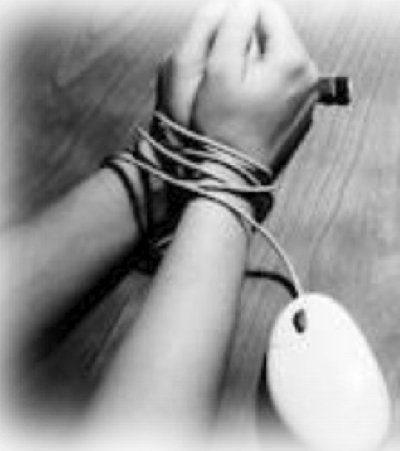Internet Addiction Disorder: How We Can Become Hooked in a Cyber World
 Internet Addition
Internet Addition
The internet has changed not only the way we live our lives but also how we view life. What was once unthinkable 70 years ago can be a simple click of a button or a push of a screen. We work on the internet, we play on the internet, we do our shopping on the internet, we socialise on the internet, we find love on the internet, we share our knowledge on the internet and we can even gain sexual pleasure via the internet. You could say we live our lives in a cyber-internet world. The Office for National Statistics says that 30.1 million adults in the UK accessed the internet almost every day in 2010 and the popularity of social networking sites continues to flourish. But what if we really do start to become part of a cyber world? What if we spend so much time online that the cyber world starts to become our reality and our cyber friends start to replace our ‘real’ friends? What if we were struggling to stop this happening?
What is Internet Addiction Disorder?
Internet Addiction Disorder (IAD) is the term used to describe a number of subtype problems which are all essentially characterised by excessive and inappropriate use of the internet or computer. This is a somewhat difficult thing to measure. We each use the internet for different reasons maybe to work or to chat with friends abroad and avoiding the internet can be almost impossible thanks to smart phones. The key thing to remember is that spending time on the internet only becomes a problem when it starts to interfere with our relationships, our work, our health etc. If the negatives associated with using the internet begin to outweigh the positives and you still keep using it may be time to go-offline. That’s not to say that you can never go on the internet again. Many of us turn to the internet to manage a whole host of negative feelings such as stress, loneliness, depression and anxiety. But if the internet becomes your only way managing these feelings it may be time to get some help to show you the different ways you can manage outside of the computer.
Types of Internet Addiction
Some of the subtypes included under Internet Addiction Disorder include:
- Cybersex – compulsive use of Internet pornography, adult chat rooms, or adult fantasy role-play sites impacting negatively on real-life intimate relationships.
- Cyber-Relationship – addiction to social networking, chat rooms, and messaging to the point where virtual, online friends become more important than real-life relationships with family and friends.
- Net Compulsions – such as compulsive gambling, stock trading, shopping or compulsive use of online auction sites such as eBay, often resulting in financial problems.
- Information Overload – compulsive web surfing leading to lower work productivity and less social interaction
- Gaming Addiction – obsessive playing of on and off-line computer games, such as Solitaire or Minesweeper, or obsessive computer programming.
The most common of these are cybersex, online gambling, and cyber-relationship addiction.
Signs and Symptoms of Internet Addiction Disorder
Signs and symptoms of IAD vary from person to person. For example, there are no set numbers of hours per day that you have to be on the internet or computer. But here are some general warning signs that your Internet use may have become a problem:
- Losing track of time online.
- Having trouble completing tasks at work or home such as cleaning or jobs at work.
- Isolation from family and friends.
- Feeling guilty or defensive about your Internet use.
- Feeling a sense of euphoria while involved in Internet activities.
Internet or computer addiction can also cause physical discomfort such as:
- Carpal Tunnel Syndrome (pain and numbness in hands and wrists)
- Dry eyes or strained vision
- Back aches and neck aches; severe headaches
- Sleep disturbances
- Pronounced weight gain or weight loss
Is Help Available for Internet Addictions?
The answer is yes! There are a number of steps you can take to get your Internet use under control. While you can start to do some of these steps at home, getting outside support will help to make sure that don’t fall back into bad habits. This will mean you are still able to enjoy the positives the internet brings whilst avoiding the negatives.
- Recognize any underlying problems: For example, recognising that depression, anxiety, stress or loneliness underlies your use can have a big impact on how you can help to cut your use. Start looking for alternative ways to handle these problems first and you might find you don’t need the internet as much to fill the void.
- Strengthen your support network. Set aside dedicated time each week for friends and family. Develop new social networks by joining a new group, going to the gym or simply arranging to spend time outside of your computer with friends and family.
- Try Therapy: Cognitive Behavioural Therapy can help you find ways to look at your thoughts, feelings and behaviours around internet use. It can help you learn healthier ways of coping with uncomfortable emotions such as depression, anxiety, stress or loneliness and start to rebuild your self-esteem to be able to go on and enjoy other experiences.
It’s important to remember is that there is help out there for any one struggling with IAD. It can sometimes feel like no-one understands the day-to-day struggles that someone who has IAD suffers. But help is available. Therapy can bring these struggles to light and help manage them so that day by day things get a little better and a little easier.




